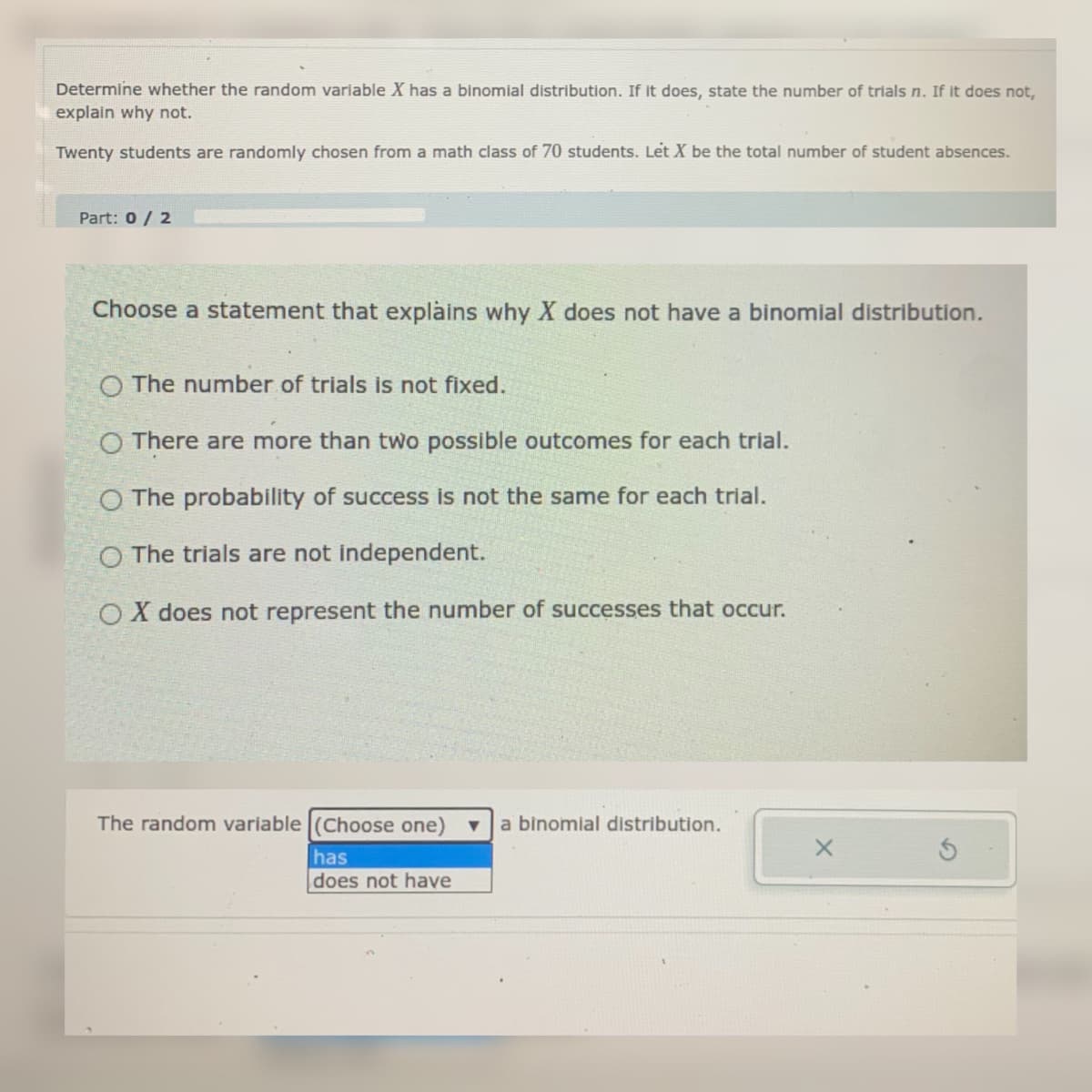Determine whether the random variable X has a binomial distribution. If it does, state the number of trials n. If it does not, explain why not. Twenty students are randomly chosen from a math class of 70 students. Let X be the total number of student absences.
Determine whether the random variable X has a binomial distribution. If it does, state the number of trials n. If it does not, explain why not. Twenty students are randomly chosen from a math class of 70 students. Let X be the total number of student absences.
Holt Mcdougal Larson Pre-algebra: Student Edition 2012
1st Edition
ISBN:9780547587776
Author:HOLT MCDOUGAL
Publisher:HOLT MCDOUGAL
Chapter11: Data Analysis And Probability
Section11.9: Independent And Dependent Events
Problem 9E
Related questions
Question
Determine whether the random variable X has a binomial distribution. If it does, state the number of trials n. If it does not,
explain why not.
Twenty students are randomly chosen from a math class of 70 students. Let X be the total number of student absences.

Transcribed Image Text:Determine whether the random variable X has a binomial distribution. If it does, state the number of trials n. If it does not,
explain why not.
Twenty students are randomly chosen from a math class of 70 students. Let X be the total number of student absences.
Part: 0 / 2
Choose a statement that explains why X does not have a binomial distribution.
O The number of trials is not fixed.
O There are more than two possible outcomes for each trial.
O The probability of success is not the same for each trial.
O The trials are not independent.
OX does not represent the number of successes that occur.
The random variable (Choose one) v
a binomial distribution.
has
does not have
Expert Solution
This question has been solved!
Explore an expertly crafted, step-by-step solution for a thorough understanding of key concepts.
This is a popular solution!
Trending now
This is a popular solution!
Step by step
Solved in 2 steps with 1 images

Recommended textbooks for you

Holt Mcdougal Larson Pre-algebra: Student Edition…
Algebra
ISBN:
9780547587776
Author:
HOLT MCDOUGAL
Publisher:
HOLT MCDOUGAL

College Algebra (MindTap Course List)
Algebra
ISBN:
9781305652231
Author:
R. David Gustafson, Jeff Hughes
Publisher:
Cengage Learning

Holt Mcdougal Larson Pre-algebra: Student Edition…
Algebra
ISBN:
9780547587776
Author:
HOLT MCDOUGAL
Publisher:
HOLT MCDOUGAL

College Algebra (MindTap Course List)
Algebra
ISBN:
9781305652231
Author:
R. David Gustafson, Jeff Hughes
Publisher:
Cengage Learning